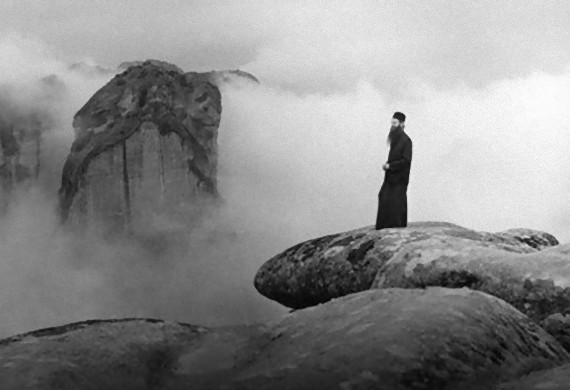The steward, who was a Pole and was a caring man, came over and found me reading the Philokalia and started asking me about what I was reading. “Ah,” he said, “that’s the Philokalia! I’ve seen this book before at our priests’ house when I was at Vilna (today in Lithuania). They told me, however, that it contains odd things, schemes and sophisms about praying written by simple Greek monks. It’s like those written by these fanatics in India who sit down and expire in a peculiar way, trying to get some sort of tickling in their hearts, and stupidly believe that this feeling is prayer, and consider it as a gift of God. All that is necessary for every person is to fulfill the duty of praying to God simply, to say standing the Lord’s Prayer, the way that our Christ taught us. This is sufficient for the entire day, and not to go on again and again. That, if I may say so, is enough to drive someone mad. Besides, it can also cause heart problems.” “Don’t think in that way about this holy book, my friend” I answered. “It was not written by simple Greek monks, but by great and holy men of older times, men whom your church, the Roman Catholic church, honors as saints. These are Saint Anthony the Great, Saint Macarius of Egypt, Saint Mark the Ascetic, Saint John Cassian the Roman, and many others. It was from them that the monks of India learned the ‘heart method’, the internal prayer, with the difference that distorted much, during the application of what they have been taught. In the Philokalia, the teaching about the practice of the Jesus Prayer, ‘Lord have mercy on me a sinner’, the prayer of the heart, is taken from the Word of God, from the Holy Bible, in which our Lord Jesus Christ told us to say the Lord’s Prayer, but also taught us the ceaseless prayer in the heart.
From The Way of the Pilgrim
Translated by Dr. Nick Stergiou

